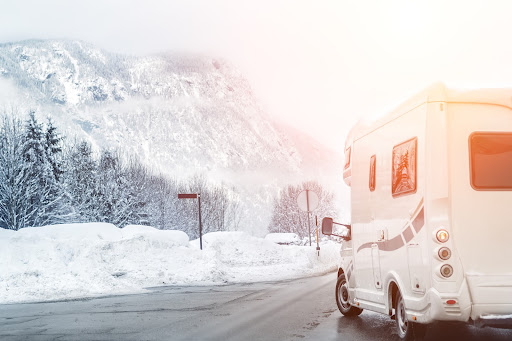
The number of RV owners is at a record high, with 11.2 million households in the United States owning an RV as of 2021. However, many of these RV owners do not know how to winterize an RV or other important aspects of RV maintenance.
By learning the steps to winterize your RV in winter, you can protect your investment.
Do you want to learn more about winterizing your RV and the essential steps to take during this process? Keep reading this RV winterizing checklist for everything you need to know!
Drain and Flush Your Plumbing Systems
The first thing you need to do to winterize your RV system is drain and flush your plumbing systems. If you let water sit in your RV all winter long, it can lead to bacteria growth, burst pipes, and more.
First, you need to drain and flush the black and gray water tanks. This wastewater can cause a lot of damage if it isn’t cleaned, so make sure you drain them and flush them with a tank cleaner.
You also need to flush all of the water out of your water heater. To do this safely, you need to make sure the water has cooled down and that there is no pressure.
Fill Water Lines With Antifreeze
Next, you need to fill the water lines in your RV with antifreeze. To make sure you don’t waste several gallons of antifreeze, make sure you bypass the water heater. Often, your RV will come with an RV winterizing kit that will allow you to do this or may even have a bypass installed already.
By pouring antifreeze in your waterlines and p-traps, you will make sure these pipes do not freeze over the winter months.
Remove All Food
Another important part of RV winterizing is to remove all of your food and belongings from your RV. If you skip this step, you may find that your RV is infested with insects, mice, or other critters when you start de-winterizing your RV.
Leaving food in your RV can attract pests, but it can also lead to an unpleasant mess that you need to clean up after the winter.
Double-check your fridge, your cabinets, and any other storage areas of your RV to remove food.
Seal Entrances to Your RV
To prevent pests from getting into your RV during the winter, you also need to seal any entrances to your RV. Rodents can easily get inside your RV by squeezing through small spaces.
One way to prevent this is by spraying anti-rodent foam insulation into any cracks, holes, or crevices in your RV. Make sure you check for holes both inside and outside your RV.
You can also place rodent traps in your RV to prevent an infestation from happening.
Sealing these entrances to your RV will keep pests out, but it will also ensure that no other intruders can find their way into your RV while it is in storage.
Top Off Fluids
It is also essential that you top off all the fluids in your RV before storing it for the winter. This will ensure that everything runs smoothly when you want to use your RV in the spring or summer.
Top off your engine oil, transmission and brake fluids, and anything else that needs to be filled.
Prepare RV Tires
Preparing your RV tires is another important step to RV winterization. This is just as important as taking care of your tires while you are actively driving your RV.
When you are not using your RV for an extended period of time, it is best to park your RV on the concrete whenever possible. You also need to make sure you set the parking brake and use wheel chocks to prevent your RV from moving.
If you have external jacks, you should use these to lift your RV. This can help them from wearing out and will keep them from developing flat spots.
When you store your RV outside, you should also spray your tires with a UV-protecting conditioner or invest in tire covers to keep them from wearing out in the sun.
Deep Clean Your RV
Before you store your RV for the winter, you need to deep clean it. You should make sure to unplug your appliances and clean them out to prevent bacteria or mold from growing.
After removing all of your belongings, you need to wipe down each surface in your RV. Vacuum all the floors and carpets, remove bedding and make sure you do not forget any food in your RV.
To prevent moisture from causing problems in your RV during the winter, you can also place dry packs of silica around your RV. These dry-packs are moisture-absorbing and will help dehumidify your RV during the winter.
Deep cleaning is vital to make sure your RV is ready to use after the winter.
Invest in an RV Cover
Finally, you need to invest in an RV cover. This is especially important if you live in an area with harsh winter weather, as it can prevent water damage, rust, and other issues.
If you have covered parking for your RV, this will effectively protect your RV from harsh weather. You can also use a waterproof tarp to keep your RV protected during the winter.
Need Help With Your RV in Winter?
Maintaining your RV in winter is an essential part of RV ownership and will keep it running smoothly in the coming year. By following each of these tips, you can be sure that your RV is taken care of and will not have any issues in the spring.
If you need help maintaining your RV, Leisureland RV Center can help! We offer everything from RV sales to repairs and other RV winterizing near me.
Contact our team today to learn more about our services and to book your winterizing service.
